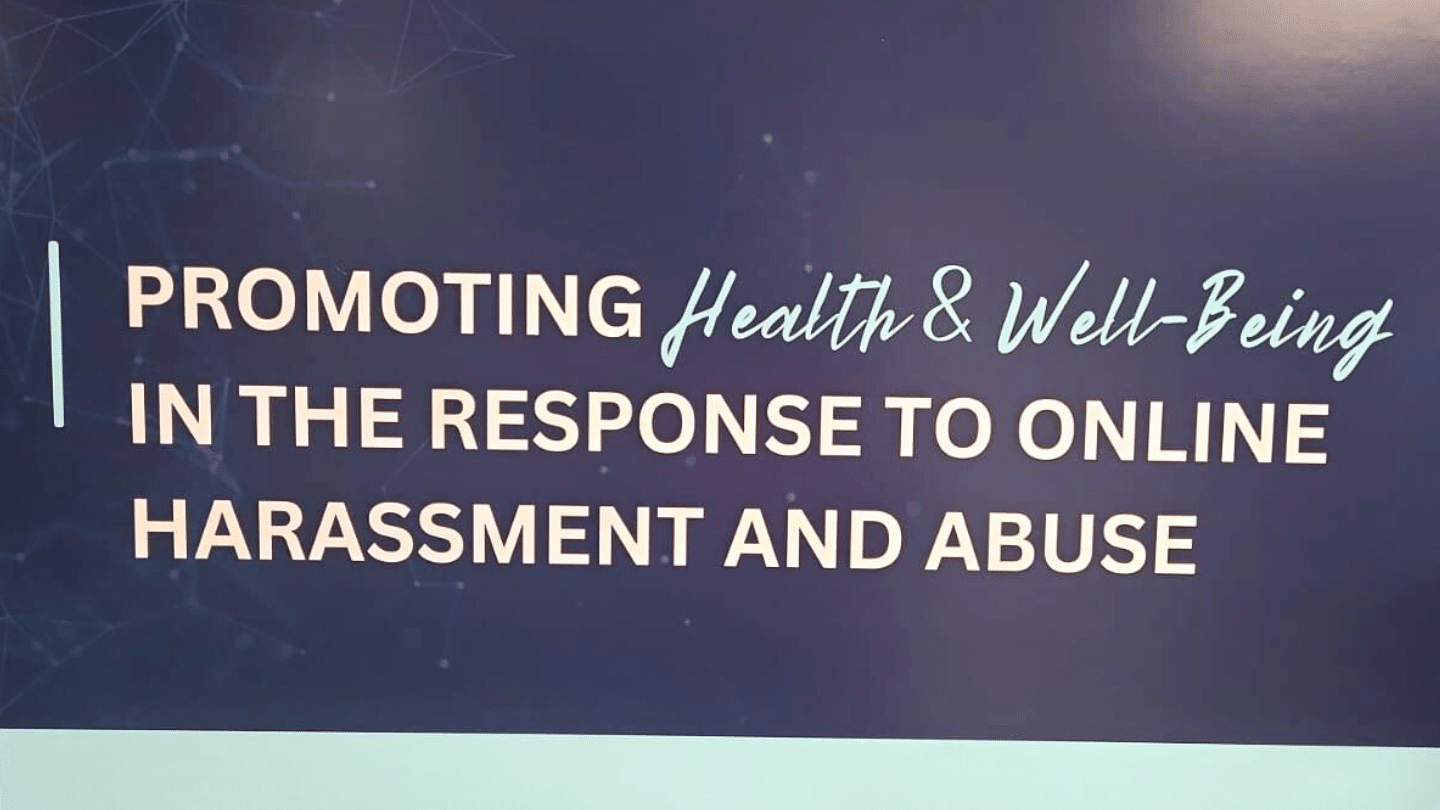My name is Manira Alva. I lead our work at Vital Voices Global Partnership supporting outstanding women political leaders positively influencing global public policy. Since its creation, Vital Voices has directly invested in 40,000 women changemakers across 187 countries. Our core mission is to support and advance women’s leadership. The women of our Network work at the forefront of advancing global development goals and basic rights.
The choice to lead has always entailed courage, extraordinary sacrifice and the ability to endure harsh attacks and vilification. The women of our Network are accustomed to taking on difficult challenges and overcoming the seemingly impossible. But today our Network is enduring, and courageously facing down, a pernicious threat to engagement in public life.
In 2023, Vital Voices supported an initiative to study issues that impact the leadership journey of women. From our Network, we repeatedly heard of the debilitating impact of online violence and disinformation that were forcing women from public leadership.
We further documented in studies, research and everyday experience how the weaponization of technology and exponential rise of technology-facilitated gender-based violence poses a novel, immediate, acute and virulent means to threaten, attack and harm. One of the most devastating forms of technology-facilitated gender-based violence is image-based sexual abuse. Nonconsensual deepfake pornography—where AI technology manipulates women’s images—is an acute and escalating threat.
And how, distressingly, one of the most insidious forms of technology-facilitated gender-based violence is image-based sexual abuse, with nonconsensual deepfake pornography as a harmful subcategory.
While much of the public discourse around deepfakes centers on political disinformation, studies show that 90–95% of deepfake content is pornographic, and 90% of this content targets women. Women who are targeted face emotional distress, reputational harm, and safety risks, increased by limited legal protections and technological interventions.
These abuses are used in political and power contexts to silence and discredit women leaders: Like the South Asian parliamentarian and member of our global Network who considered resigning her legislative seat when her face was morphed on to semi-nude female body in a compromising pose with her party president.
She is a former Member of Parliament in South Africa and Shadow Communications Minister who quit politics to pursue Humane Technology countering online disinformation and harassment. She was selected in 2022 as a Vital Voices Global Leadership Award nominee for her groundbreaking work and activism in countering online disinformation and harassment.
“Women see the online threats of rape, the cyberbullying, the doxing, the disinformation, and say ‘I do not want or need this’.” she said.” I never want to have to tell another woman that you need to be strong to exist online. We deserve to share our voices freely and with ease without having to swallow the terrors that come with being a woman online.”
Her leadership informs so much of the work we do at Vital Voices, and how we work to sustain women’s leadership and advocate for laws, practices and protection for women leaders and those targeted by gender-based violence. For example:
- Our Crisis Readiness and Response Program equips women leaders to counter online violence, including deepfakes through actionable safety plans and strategies to address emerging threats posed by AI technologies.
- We amplify the voices of survivors and advocate for systemic change, raising awareness about the prevalence and impact of deepfake pornography. Our efforts include urging stronger legal and technological safeguards and investing in research to drive evidence-based solutions.
- We bring together survivors, activists, technologists, and policymakers to drive survivor-centered solutions. By fostering multi-stakeholder partnerships, we drive survivor-centered solutions.
The rising prevalence of image-based sexual abuse demands immediate, coordinated action to protect women leaders and ensure their participation in public life. We are committed to driving progress and strengthening collaboration among civil society, technology companies, and governments to scale solutions that create a safer digital future for women and girls. We are working to bring stakeholders together to support:
- Strengthening Legal and Regulatory Frameworks: Policymakers must enact comprehensive legislation criminalizing creation, distribution, and possession of nonconsensual deepfakes. International cooperation is essential to address the transnational nature of these crimes and establish consistent legal standards.
- Advancing Technological Solutions: Technology companies must prioritize the development of robust AI tools to detect and remove deepfake content. They must also implement stringent safeguards to prevent the misuse of AI for harm.
- Empowering Survivors and Preventing Future Harm: To address root causes, we must invest in education programs in schools and workplaces to continue challenging harmful gender stereotypes and promoting media literacy.
In addition, we should expand access to mental health, legal aid, and victim support organizations for individuals affected by image-based sexual abuse. Increased funding for initiatives like Vital Voices’ Crisis Response Fund is critical to meeting these needs.
As a global advocate for women’s rights, Vital Voices urges stakeholders to prioritize the protection of individuals, especially women and girls, who are disproportionately affected by technology-facilitated gender-based violence. Together, we can ensure that technological innovation does not come at the expense of human dignity and safety. The time to act is now.
Manira Alva brings over 25-years of multi-genre media experience, gendered-policy formulation and political strategizing to the Vital Voices leadership team. As the Vice President of Issue Advocacy, she oversees a number of fellowships focused on building the capacity of women leaders in political office and advocacy. She is committed to changing the narrative and culture regarding women and public leadership.

